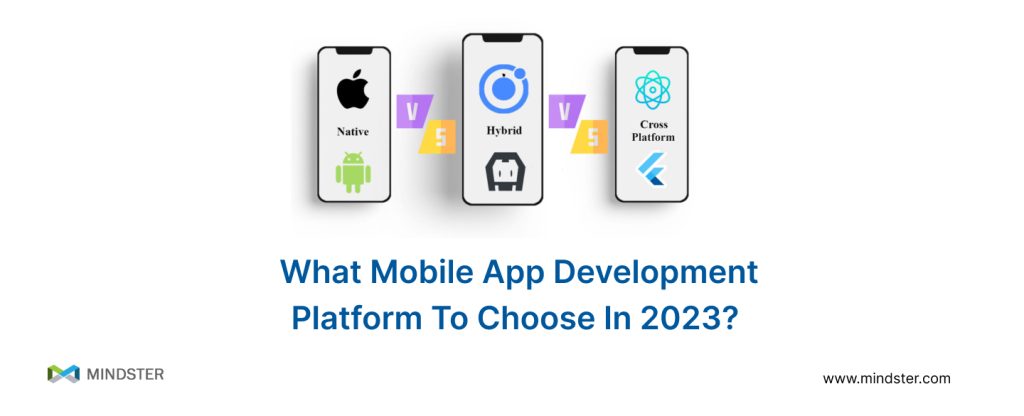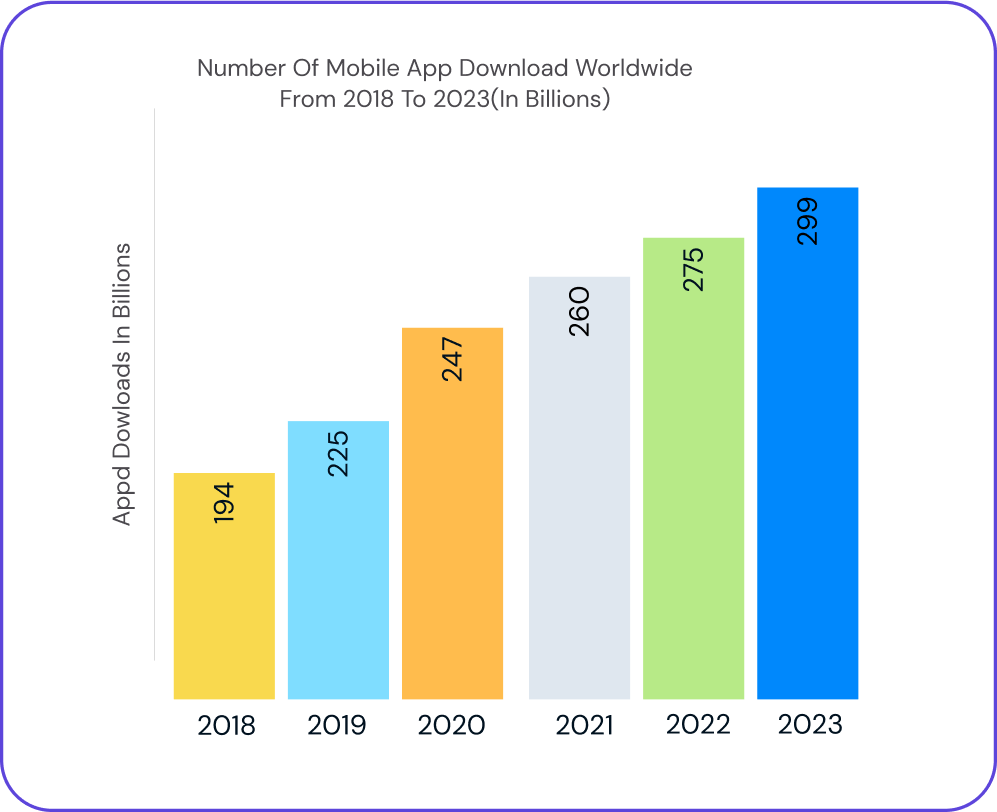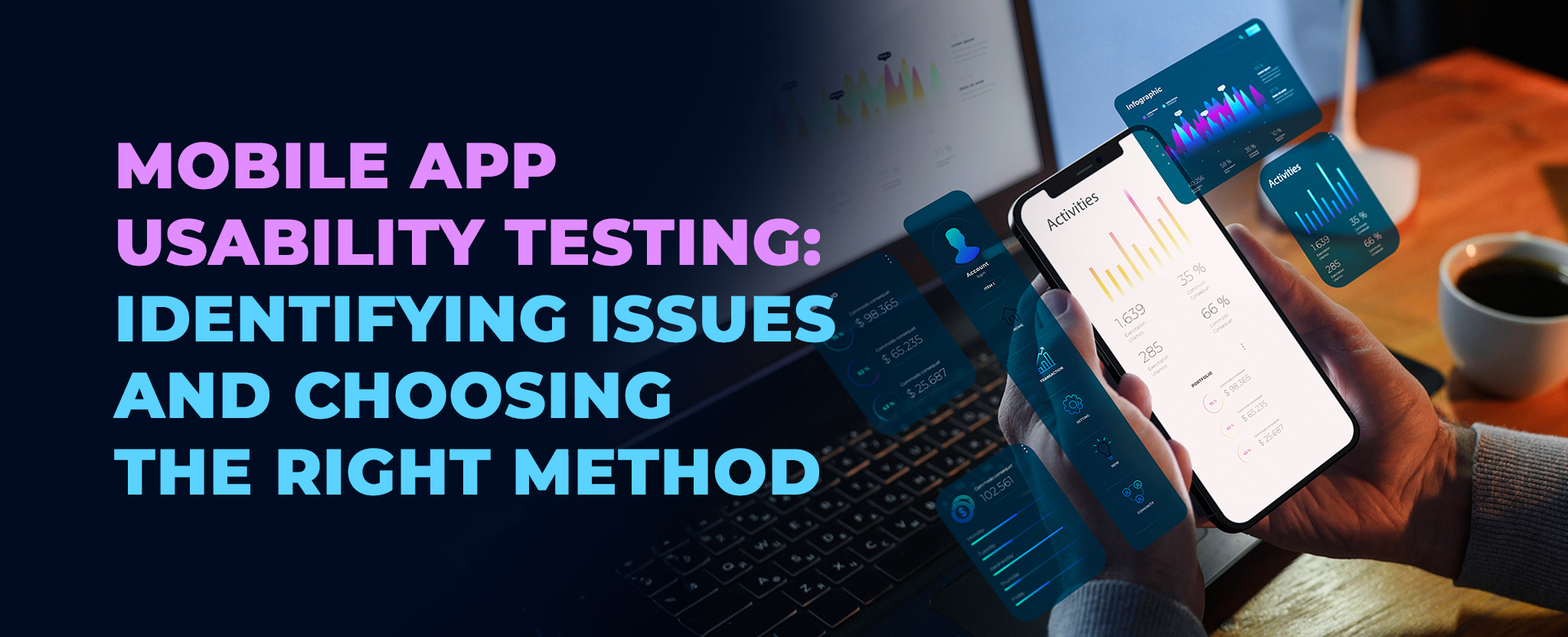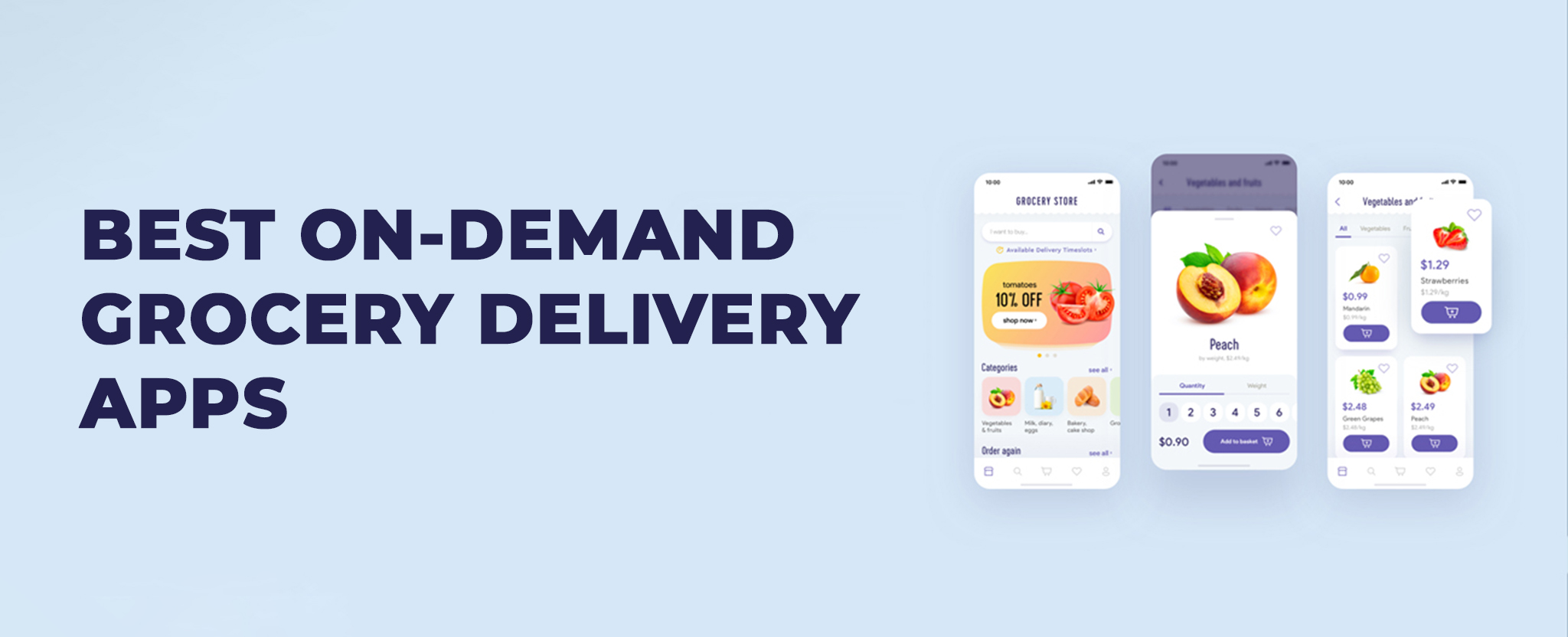Cross Platform vs Hybrid vs Native-What Mobile App Development Platform To Choose In 2024?
4 Feb 23 


Summary: The choice of mobile app development strategy will have a significant impact on the success of your app, regardless of the industry sector in which you operate. It would decide whether your app would stand out or go the same way thousands of others do every year: into oblivion. So, which app development method—native, hybrid, or cross-platform—should you choose?
According to Statista, the number of app downloads worldwide will reach 299 billion, up from approximately 275 billion in 2022.

Paid downloads and in-app advertising are expected to bring in over $935 billion in revenue for mobile apps even in 2023.
Because of the intense competition, business owners are forced to place an emphasis on the quality, precision, functionality, and other parameters that persuade potential customers to choose their services over alternatives.
Businesses typically face multiple dilemmas at this point, such as selecting the best technology for mobile app development services, iOS or Android, or the best app development framework to increase customer engagement.
Native, hybrid, and cross-platform mobile app development approaches will be discussed in this blog.
What is a Cross Platform App?
Let’s first clear up the confusion for young entrepreneurs who believe cross-platform app development and hybrid app development are the same thing.
The terms “cross-platform” and “hybrid” in app development are completely different concepts that serve distinct purposes. The goal of cross-platform frameworks is to create code that can be shared and reused to build apps for different operating systems. By writing code once and reusing it across multiple platforms, app development costs and time are reduced.
Apps that run on multiple platforms will guarantee simple implementation, robust functionality, and affordable production. A cross-platform app development framework, on the other hand, does not promise exceptional customization or performance.
Best examples of Cross-Platforms Apps
- Insightly
- Bloomberg
- Reflectly
- Skype
- Slack
Advantages of Cross-Platforms Apps
- Rapid and Hassle-Free Development
Obtaining reusable code backed by increased productivity and efficiency is a significant advantage for developers and business owners in the long run. A cross-platform app development framework gains an advantage over other alternatives in this area.
- Excellent Product Maintenance
Businesses can rest assured of flawless outputs because cross-platform app development uses a single codebase. Because there is only one codebase, it is simpler to test, deploy, and experience mobile applications that are more accurate and of higher quality.
- Cost savings
The Cross-platform app development framework has the potential to accommodate all platforms. Startup businesses looking to gain traction quickly in the market benefit from this because it expands their global market reach and increases the popularity of their brand. Additionally, cross-platform applications offer lower initial costs.
- Code Reusability
With cross-platform apps, developers don’t have to write new code for each operating system every time. Transferring code to different platforms can be accomplished with the help of a common codebase.
Disadvantagesof Cross-Platforms Apps
- Complexity of the Development Lifecycle
If you want to make apps that work on a few platforms, you should hire a team of skilled developers. When putting complex functions and interfaces into place, you’ll need to pay close attention to the nitty-gritty differences between the hardware that operating systems run on and the operating systems themselves.
- Difficult Integrations
It is frequently challenging for developers to integrate cross-platform applications into local settings. Additionally, the code of HTML5 cross-platform applications is complicated due to the use of callback-style programming.
What is Hybrid App?
The integration of web and native applications is known as hybrid app development. With the help of plugins like Ionic’s Capacitor, Apache Cordova, and others, developers can gain access to native functionality in these apps by embedding code written in languages like CSS, HTML, and JavaScript into a native app.
The backend code and the native viewer, which is downloaded to display the functions and backend, make up the hybrid platform.
With hybrid app development, the code is only written once, and it can be used on multiple platforms. Hybrid apps can guarantee performance and user experience that are comparable to native apps. Still, the user experience and navigation patterns of hybrid app development need to be improved.
Best examples of Hybrid apps
- Evernote
- Gmail
- Airbus Helicopters
- NHS
- JustWatch
Advantages of Hybrid Apps
- Rapid time to market
Start-ups typically have the mindset of expediting MVP shipping. As a result, a hybrid app development framework is the best option because it enables the app’s rapid development and early market entry for mobile app development.
- Easy Maintenance
Hybrid apps are easier to maintain than native and cross-platform apps with complex coding because they are solely based on web technology.
- Reduced Costs and Ease of Development
With the hybrid app development lifecycle and unified development, startups with limited funds can breathe easier. They don’t have to make separate investments to build applications in different versions for different platforms. Developers can create a single version of their mobile app and use it on multiple platforms thanks to hybrid app development frameworks.
- Improved UI/UX
Hybrid apps with combine the advantages of native and web apps to provide a flawless user experience on both Android and iOS platforms. The lightweight hybrid app UI of hybrid application development makes it possible to load graphics and content extremely quickly.
Disadvantages of Hybrid Apps
- Absence of Offline Support
Unlike native apps, hybrid applications do not provide offline support. To use the app’s features, users must wait for an Internet connection.
- OS Inconsistencies
Because hybrid apps use a single code, some features that are unique to one operating system don’t work perfectly on other systems. For example, some Android-specific features might not work on iOS devices.
What is a Native App?
Using platform-specific programming languages, native apps are made just for a certain operating system.
The process of creating software or apps that run on specific mobile device platforms like Android and iOS is known as native app development. The native-to-the-operating-system programming language is used by developers in native app development to create applications for a single platform—such as desktop computers, smart TVs, smartphones, or any other cutting-edge digital devices.
Java or Kotlin are used to create native apps for Android, while Objective-C or Swift are used for iOS. When you want to provide the best possible user experience in terms of the application’s appearance and feel, native mobile app development is the best option. Because native app development can make use of primary smartphone hardware components like GPS, proximity sensors, cameras, microphones, and so on, developers have access to adding more capabilities and features to their apps.
Best Examples of Native Apps
- Google Maps
- Spotify
- Artsy
Advantages of Native Apps
- High Speed
Native mobile apps are faster than hybrid and cross-platform apps because they don’t have to write complicated code. The majority of app elements preload well in advance, allowing for rapid display. Native applications are preferred by startups due to their low cost and quick development time.
2.Offline Usability
One of the main advantages of native apps is that they work perfectly even when there is no internet connection. It makes it more convenient for users because they can access all of the app’s features in airplane mode or offline. Native apps’ offline support is crucial for users who live in remote areas, have limited data access, or live in areas with poor internet connectivity. This is an added advantage for mobile app development.
3. Intuitive and interactive.
Native apps adhere to the guidelines because they are developed specifically for a given operating system (OS), resulting in an enhanced user experience that is perfectly compatible with that OS. In addition, because native apps adhere to the guidelines, users are able to interact with them using gestures and actions with which they are already familiar.
4. Minimized Bug Scope
In native app development, managing two distinct codebases becomes more challenging than managing a single codebase. Native apps have few bugs because they use a single codebase and don’t use tools for multiple platforms.
5. High Performance
Native app development aids in the creation of apps that are optimized for a particular platform to guarantee high performance. Native apps are responsive and relatively quick because they are designed specifically for a particular platform. Additionally, these apps are compiled with APIs and core programming languages, making them more efficient than native apps.
6. Enhanced Security
App development makes use of a variety of browsers and technologies like HTML5, JavaScript, and CSS to protect the user’s data completely.
Disadvantages of Native Apps
- No Code Reusability
If native apps for iOS and Android are built separately, you will need to code and develop them for both mobile operating systems. In addition, compared to cross-platform apps with a reusable codebase or hybrid mobile apps with shared backend code, this would require a significant amount of time, effort, money, and resources.
2. High Maintenance
Native app development comes with high maintenance costs, which can be even more expensive than the development costs themselves.
3. Needs More Skill and Talent
Because native mobile apps are made for a specific language, it’s hard to find developers who can make native apps at the same time. When comparing cross-platform app development to native app development, you will need to hire two teams for native app development, whereas cross-platform app development only requires one team.
Conclusion
The next question that comes to the minds of business owners is which of the three mobile app development frameworks is the most effective. It all depends on the requirements of the project, budget, business model, target audience, demographics, and many other factors, whether native, hybrid, or cross-platform is chosen.
When it comes to cross-platform apps versus native apps, it’s hard to pick a winner because of a few factors and the advantages of each. You can quickly determine which cross-platform app, native or hybrid, is superior.
Delivering customization, personalization, and enhanced usability are all areas in which businesses must work. When compared to cross-platform app development, native apps have superior UI capabilities due to their customizable interface components and pre-configured libraries. Therefore, for UX and customization, native app development is the best option.
- Android Development3
- Artificial Intelligence27
- Classified App3
- Custom App Development2
- Digital Transformation11
- Doctor Appointment Booking App13
- Dropshipping1
- Ecommerce Apps38
- Education Apps2
- Fintech-Apps34
- Fitness App2
- Flutter3
- Flutter Apps19
- Food Delivery App5
- Grocery App Development1
- Grocery Apps3
- Health Care7
- IoT2
- Loyalty Programs9
- Matrimony Apps1
- Microsoft1
- Mobile App Maintenance2
- Mobile Apps120
- Product Engineering4
- Progressive Web Apps1
- Saas Application2
- Shopify7
- Software Development1
- Taxi Booking Apps7
- Truck Booking App5
- UI UX Design8
- Uncategorized4
- Web App Development1


















Comments